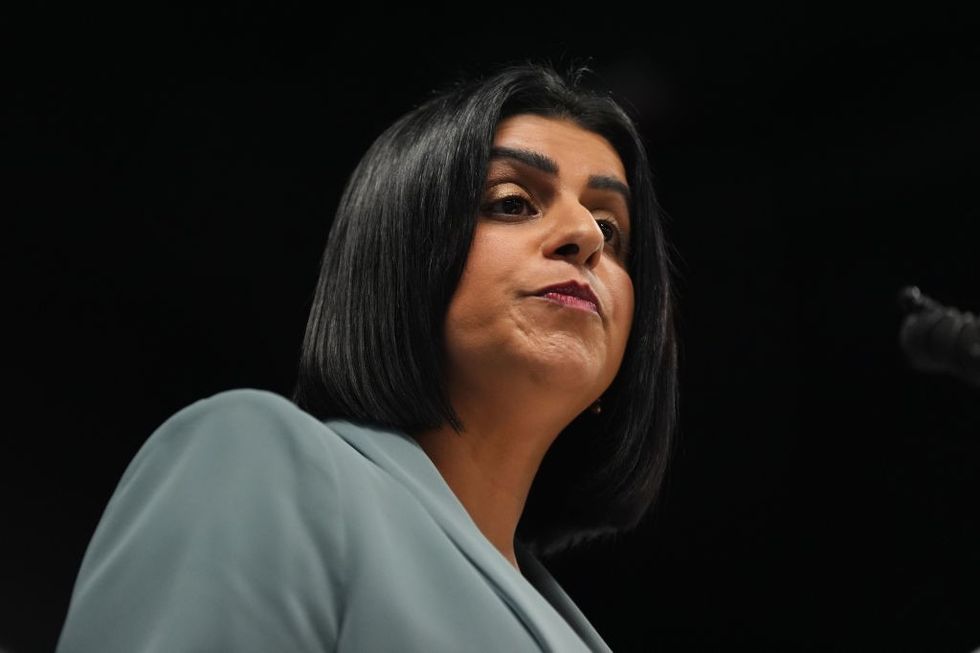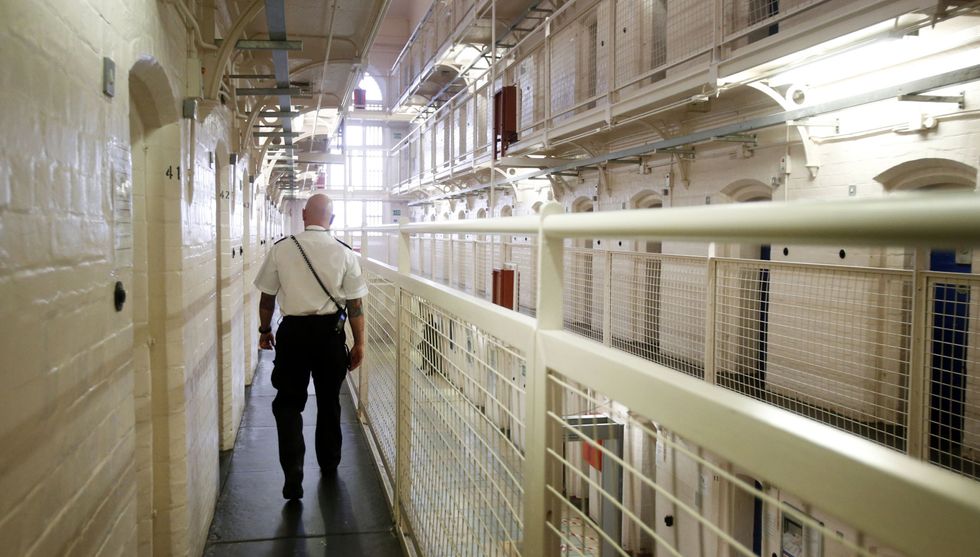Shabana Mahmood’s defence of payments to nearly 50 offenders on deportation flights omits one key detail.
The Home Secretary said it “doesn’t look good” after ITV News filmed the migrants being taken from immigration removal centres on Tuesday to be flown back to Romania, where they were each given bank cards pre-loaded with up to £2,000.
The facilitated return scheme is designed to encourage offenders to agree to their early removal from the UK before they have completed their prison sentences, saving up to £54,000 a year that would otherwise be spent on housing them in jail.
Each foreign criminal is entitled to up to £2,000 under the scheme, encouraging and aiding their resettlement in their home countries. They are told to withdraw the cash on landing.
Under the scheme, foreign criminals are offered £1,500 if they apply to be deported while in jail. Qualifying family members would also be offered £1,500. Those who apply after completing their prison term or have non-custodial convictions can get £750.
There is a discretionary extra £500 offered for those with “vulnerabilities”, which include mental disorders, physical or mental disabilities, pregnancy, age, destitution, homelessness or serious illness.
Foreign criminals can also be removed after serving as little as 30 per cent of the custodial part of their sentence, rather than 50 per cent, under changes to the law made by Shabana Mahmood that came into force on Tuesday.
Shabana Mahmood, who introduced the changes on early prison removal during her time as the justice secretary, said of the payments that “out of context, it’s not great, it doesn’t look good”.
LATEST DEVELOPMENTS
- Politics LIVE: Shabanna Mahmood admits £2k payment to foreign criminals on deportation flights ‘doesn’t look good’
- WATCH: Labour MP assures Shabana Mahmood will ‘fight every step’ to ensure migrant deportations
- Shabana Mahmood vows to APPEAL ‘intolerable’ 11th-hour efforts to frustrate France returns deal

But she added: “A voluntary removal is actually cheaper for the British taxpayer. It has long been the case that we do offer financial packages as an incentive to people to drop their claims and drop the attempts they make to stay in our country, and to board a flight and leave.”
Does she have a point? Yes and no. Yes, because the £2,000 payments are a drop in the ocean compared to the £600million it costs British taxpayers to house the 11,000 foreign nationals in British prisons.
However, this calculation doesn’t take into account that these cash payments are additional costs to the taxpayer that they would not face if there weren’t a barrage of legal challenges to involuntary deportation.
Critics argue that these cash incentives are therefore a costly solution that doesn’t address the main barrier to deportation.
The European Court of Human Rights (ECHR) lays out many hurdles, making it incredibly difficult to deport a foreign criminal involuntarily.
The case of a foreign criminal, Hadush Kebatu, who was sentenced to 12 months in jail for sexually assaulting a 14-year-old girl and a woman, underscores the challenge.
Immigration lawyer Ivon Sampson told GB News: “I’m afraid there’s going to be a problem in sending him back to Ethiopia while we’re in the ECHR, because Article 3 and Article 2 will prevent that.
“It’ll be a breach of Article 33, you can’t send someone where they will face persecution. And we may not like it, you may not like it, I don’t like it, but I’m afraid we have to have humane policies.”
Nigel Farage has vowed to pull the UK out of the ECHR if he wins the next general election, chiefly to eliminate the costly legal barriers to mass deportation.

The UK would join Russia and Belarus in leaving the ECHR, which was established in the 1950s.
Mr Farage said the ECHR was “obviously made in good intentions” but it is now “clearly outdated”.
However, leaving the treaty would not automatically remove all costs to the taxpayer. There are many other legal, diplomatic, and financial barriers, and the courts could challenge the decision on human rights grounds.
So far, the Home Office has already forked out £53million for migrants to leave the country, with 6,799 people being voluntarily deported in 2024.
The Home Office has defended the move of voluntary deportations, saying: “We understand that the public does not want to see financial handouts to individuals who have no legal right to remain in the UK.”
The spokesman continued: “However, the reality is that offering incentives for voluntary departure is significantly more cost-effective than detaining individuals or them remaining in the UK while they pursue lengthy legal challenges against removal.”
Our Standards:
The GB News Editorial Charter







Follow